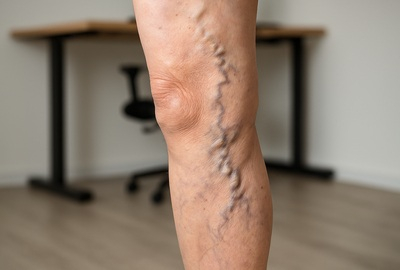- How to Stop Being a Workaholic: 8 Effective Strategies for a Healthier Work-Life Balance
- 1. Understanding Work Addiction: The Common Causes Behind Workaholism
- 2. How to Stop Being a Workaholic Without Sacrificing Hard Work
- 3. Set Boundaries, Save Your Sanity: Building Real Work-Life Balance
- 4. Self-Care Is a Strategy: Fueling Long-Term Well Being at Work
- 5. Leisure Isn’t Lazy: Why Downtime Matters for Your Mental Health
- 6. Paid Time Off Is Non-Negotiable: Rest Isn’t Optional
- 7. Seek Professional Help Before Burnout Becomes a Breakdown
- 8. Overcoming Workaholism: Reclaiming Your Life and Well Being
- Final Thoughts
How to Stop Being a Workaholic: 8 Effective Strategies for a Healthier Work-Life Balance
In today’s digital age, staying late at the office isn’t the only way people overwork. Phones buzz with notifications, work messages sneak in during dinner, and paid time off goes untouched. Being a hard worker is respected—but when work starts to take over every moment of your life, it’s a sign of something deeper: workaholism.
Workaholic tendencies aren’t about dedication alone. They often stem from anxiety, people pleaser habits, or fear of slowing down. If you're nodding along, wondering how to stop being a workaholic, you’re not alone. Many professionals silently struggle with this addiction.
This isn’t about quitting your job. It’s about taking back control—because your well being and relationships deserve just as much focus as your tasks.
1. Understanding Work Addiction: The Common Causes Behind Workaholism
Work addiction—also known as workaholism—is a compulsive need to work excessively. It goes beyond enthusiasm. It's the inability to stop thinking about your job, stop working, or leave work even when you're off the clock.
Common causes of workaholic behavior include:
- Fear of failure or losing relevance at work
- Seeking validation solely from career success
- Growing up around hard work culture
- Avoiding personal issues or responsibilities at home
- Living in the digital age, where work follows you everywhere
The negative effects? Anxiety, depression, strained relationships, chronic stress, and even serious health issues. This isn't about pushing harder. It's about knowing when the push becomes a problem.
2. How to Stop Being a Workaholic Without Sacrificing Hard Work
You don’t have to stop being driven. But learning how to stop being a workaholic means rewiring how you view success and balance.
Let’s be clear: hard work isn't the villain. But it shouldn't cost you your health or relationships. Here's how you can start to overcome workaholism without giving up your edge:
- Track your work hours daily. Are you clocking in long hours that drain your personal life?
- Schedule regular breaks—even five minutes can reset your brain and reduce stress.
- Prioritize high-impact tasks, not just “more work.”
- Practice self care as part of your routine, not a reward.
- Set clear boundaries with work-related communication after hours.
And yes, it’s okay to enjoy spending time on other things. Your life isn’t just your career. It includes your family, friends, hobbies, and quiet mornings when the weather permits a slow start.
3. Set Boundaries, Save Your Sanity: Building Real Work-Life Balance
A major step in figuring out how to stop being a workaholic? Learning to set boundaries—and sticking to them.
Boundaries aren’t walls. They’re clarity. They define where work ends and life begins.
- Decline unnecessary meetings or excessive tasks that aren't urgent.
- Don’t respond to work messages after 7 PM.
- Avoid checking emails while with family members or your partner.
- If working remotely, shut down your laptop when the day ends. Don’t “just check” one more thing.
If you struggle with being a people pleaser, remember: constantly saying “yes” to work often means saying “no” to yourself.
True work life balance means being fully present—whether in a team meeting or having lunch with a loved one. To truly stay connected to what matters, you need to disconnect from what doesn’t.
4. Self-Care Is a Strategy: Fueling Long-Term Well Being at Work
Being productive and taking care of yourself aren’t mutually exclusive. In fact, the most effective professionals prioritize self care to maintain well being and mental clarity.
This isn’t spa-day fluff—it’s essential maintenance for your mind and body.
Try this:
- Take walks during breaks to clear your head and support your health.
- Eat real meals, not desk snacks.
- Unplug from screens before bed.
- Limit caffeine and alcohol, especially during peak stress periods.
When you feel burnt out, don’t push harder. That’s a signal to rest—not a challenge to overcome. Taking care of your mental health makes space for better focus, improved productivity, and sustainable success.
5. Leisure Isn’t Lazy: Why Downtime Matters for Your Mental Health
If you cringe at the idea of rest, ask yourself why.
Workaholics often feel guilt when doing other things outside of their job. But here’s the truth: rest isn’t the opposite of work. It’s what allows you to work well.
Downtime fuels creativity, improves your mood, and strengthens your relationships. It reconnects you to your life, not just your inbox.
Start simple:
- Read fiction instead of career blogs
- Call a friend during your commute
- Leave your phone during dinner
- Take weekends off when the weather permits
- Use your paid time for actual rest, not errands
If you truly want to combat workaholism, make leisure a priority—not a luxury.
6. Paid Time Off Is Non-Negotiable: Rest Isn’t Optional
According to a Business Insider feature, millions of PTO hours go unused every year. That’s not work ethic—it’s work addiction in disguise.
Taking paid time off isn’t a sign of slacking. It’s part of maintaining overall well being.
Plan it. Take it. Honor it.
- Use it for spending time with family or friends.
- Travel or stay home—just leave work out of it.
- Don’t answer emails. Don’t sneak in a Zoom call.
- Let your body and brain reset.
Even just two consecutive days without thinking about work can break the addiction loop. When you return, you’ll actually feel present again—and ready to achieve more without sacrificing yourself in the process.
7. Seek Professional Help Before Burnout Becomes a Breakdown
Sometimes, the signs of work addiction go deeper than time management tips.
If you're constantly anxious, fatigued, or experiencing depression, it may be time to seek professional guidance.
A mental health professional can help you unpack the emotional drivers behind your habits—whether it’s perfectionism, trauma, personal issues, or unrelenting fear of failure.
When should you seek professional or mental health help?
- You have recurring panic attacks or insomnia
- You feel disconnected from your family, friends, or yourself
- Your health is suffering—frequent headaches, stomach problems, etc.
- You feel numb when you're not working
Many professionals wait too long. But burnout doesn't announce itself. It builds slowly. Don't wait for a breaking point. Get professional help before the damage affects other aspects of your life.
8. Overcoming Workaholism: Reclaiming Your Life and Well Being
This is where it all leads. You're not just learning how to stop being a workaholic—you're learning how to take your life back.
Overcoming workaholism means:
- Accepting that you're more than your job
- Protecting your time like a resource, not a burden
- Choosing relationships over reputation
- Allowing imperfection to exist without shame
- Letting go of constant focus on proving yourself
Imagine what life looks like when you're no longer chained to your calendar. When time with your partner, your kids, or even yourself isn’t sacrificed to meet one more deadline.
There’s no gold medal for exhaustion. No trophy for burnout. But there is a life waiting for you. One where you’re present. Where you feel happy. Where you finally complete your day and actually rest.
Because let’s be honest—learning how to stop being a workaholic is tough. But living in constant stress? That’s even tougher.
So, choose you.
You’re allowed to stop. Allowed to breathe. Allowed to be whole.
Final Thoughts
The struggle is real, but so is the solution. There’s no one-size-fits-all path, but every small shift counts. Whether it’s using your paid time, setting firmer boundaries, or booking that first session with a mental health professional—each step pulls you further from addiction and closer to a life where you thrive.
You don’t have to prove your value through exhaustion. Let yourself enjoy rest, support, and balance. Because you matter—both at work and far beyond it.
Stay connected to what actually matters—your health, your relationships, your life.
The choice to combat workaholism starts with one step.


 Buy Now, Pay Later
Buy Now, Pay Later Verified Rating
Verified Rating 




